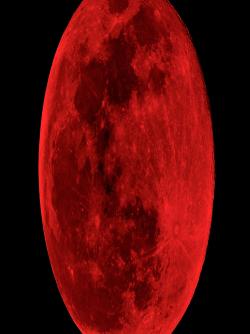Count Your Blessings
Are you thankful for God's gifts to you? Do you even recognize His greatest gifts?
Some of my most pleasant memories come from spending Thanksgiving with my family. But the holiday also makes me think about times when I have not been particularly thankful. God has blessed me with many wonderful experiences and opportunities, even when I least expected (or acknowledged) them.
At Thanksgiving, we have a natural opportunity to reflect on our blessings, and to renew an “attitude of gratitude” in our lives. How important is our attitude? God expects us to be thankful, and in Scripture He left us many powerful examples of the danger of thanklessness.
One example can be found in one of the most important Old Testament miracles God performed, providing food for His people where there was none—bread from a wilderness and life-giving provision from the dew of a desert (Exodus 16:1–5). Manna from heaven was neither stuffing, nor pudding, nor turkey and gravy, but it gave sustenance, and with it God was proving Himself to His people by providing for them so that they might live. Having opened the door to their deliverance, His gift of manna was enough, even more than enough, for a people so recently enslaved in bondage and ignorance!
So, how did the Israelites respond to God’s gift? They complained about its lack of variety, and asked for meat (Numbers 11:4–6). These people, who had not shown themselves willing to abide by their covenant with God, were already putting Him to the test by their complacency and ingratitude! If God could give them bread, they reasoned, why not meat? They forgot that God did not have to give them anything at all!
But God heard their complaints, and gave them what they wanted—and it was a harsh lesson in being careful what you wish for! He brought waves of quail, and fed them meat until they grew literally and physically sick of it: “You shall eat, not one day, nor two days, nor five days, nor ten days, nor twenty days, but for a whole month, until it comes out of your nostrils and becomes loathsome to you, because you have despised the Lord who is among you, and have wept before Him, saying, ‘Why did we ever come up out of Egypt?’” (Numbers 11:19–20). God then sent a plague to finish off those who most offensively allowed their desire for self-gratification to get ahead of their remembrance of their Deliverer (Numbers 11:33–34).
God has done something very similar for many of us today. He has allowed us to live in abundance, and blessed our nations in just about every way possible. Even when times are relatively hard, we must be careful to remind ourselves that such blessings are not shared by all, and are not guaranteed to last.
When God opens a door for us, as He did for the Israelites, we may show gratitude by going through it, but we often betray a profound ingratitude when we do not! We should have confidence that, as with the Israelites and early Christians before us, God will not “hand us a stone” in place of bread if we ask in gratitude and righteousness (Luke 11:10–12). But if we slap from His hand the gifts He offers, or if we simply walk away in ignorance or self-will, He might sometimes let us have a brush with a scorpion, or give His blessings to others more grateful. So, pray always that you may see—and walk through—those open doors (Philippians 4:6)!
Although Thanksgiving is a natural occasion for us to reflect on our attitude of gratitude, it is a holiday invented by mankind. God Himself has given His people an annual series of Holy Days that are even more meaningful. Those Holy Days are true gifts from God—from the Days of Unleavened Bread in March/April, to Pentecost in May/June, to the Feast of Trumpets, Day of Atonement, Feast of Tabernacles and Last Great Day in September/October. These annual Holy Days, outlined in chapter 23 of the book of Leviticus, are not just an opportunity to draw closer to God, but also to understand His plan of salvation for all of humanity—the ultimate and most precious blessing we can receive!






